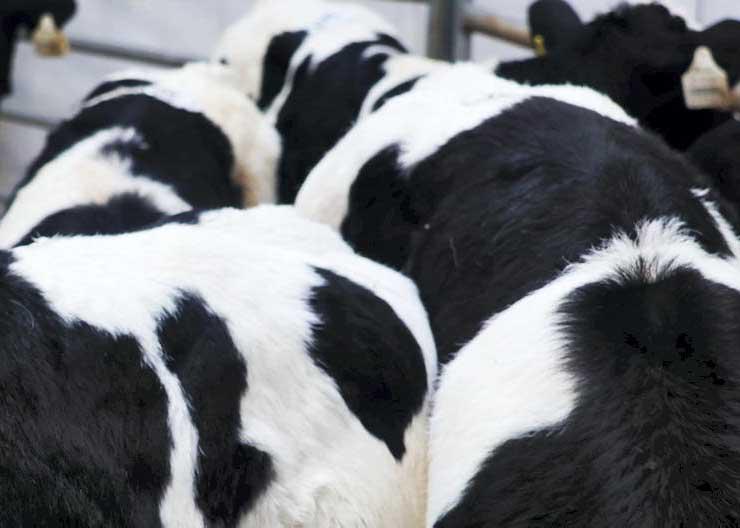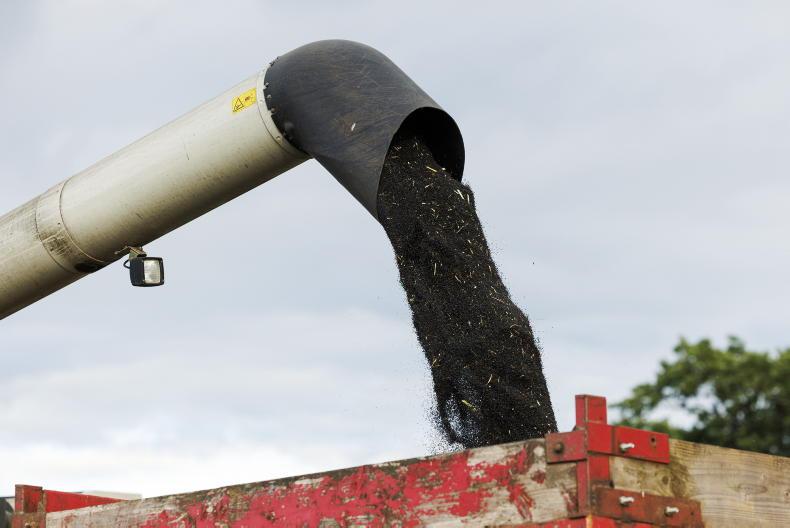The high-profile announcement of a new Windsor framework to replace the controversial and impractical Northern Ireland (NI) Protocol last week has given way to a general satisfaction in the business and commercial sector and continued uncertainty politically.
With all things Brexit, fatigue is now the prevailing emotion and there is a general sense of wanting to move on with Brexit completed.
However, the reality is that the trade and co-operation agreement (TCA) between the UK and EU will be a never-ending discussion, because issues will arise on a continual basis that will bring some aspect of the deal or its implementation into focus.
The spat over the protocol is just the first and perhaps the most serious of these, but more are sure to follow.
Already, the proposed UK legislation on cross-channel migrants and possible withdrawal from the European Court of Human Rights (ECHR) risks collapsing one of the key planks that run through the entire TCA.
Ultimately, this could put the entire TCA at risk and trigger a tit-for-tat imposition of penalty tariffs. With Irish beef and cheddar so vulnerable, this will be an ongoing stress for Irish farmers, even if last-minute solutions are always found.
North American and Swiss examples
An example of how this works elsewhere can be found in the implementation of the United States Canada Mexico Agreement (USCMA), which actually goes further than the TCA and includes sanitary and phytosanitary (SPS) controls in principle.
However, in practice, there are regular divergences in interpretation in what these are and how they should be implemented.
This week, for example, United States Department of Agriculture (USDA) Secretary Tom Vilsack announced that the US is requesting “technical consultations" with Mexico under the SPS chapter of the USCMA.
It serves to illustrate how a trade agreement is an ongoing engagement about market entry and controls, which is the polar opposite of a single market
As is so often the case, agriculture trade is the issue and the request is based on the US interpretation of Mexico using its concerns about biotechnology controls as a trade barrier to US product coming into Mexico.
The US is looking to have the principle of the agreement being based on “rules and science” accepted and entry granted to the US.
Polar opposite
This is just the current example, but it serves to illustrate how a trade agreement is an ongoing engagement about market entry and controls, which is the polar opposite of a single market. This is what exists between the EU27 and was what the UK left behind with Brexit.
In a single market, trade between the members is free and uninterrupted, with nothing left to interpretation.
Production within the single market is to a single standard and the focus is on making sure anything entering from the outside is produced to that same standard.
The reality - as exporters from the UK to the EU now understand - is that a trade agreement is very much second best to a single market.

Belfast harbour will have red and green lanes to allow free flow of goods to Northern Ireland only, with checks for anything else.
Just as the USCMA is an ongoing discussion - there isn’t even a single name for the agreement, Canada refers to it as the Canada-United States-Mexico Agreement (CUSMA) - so it will always be between the EU and UK.
In the negotiations prior to the TCA, one thing the EU was anxious to avoid was the UK occupying a space similar to Switzerland.
The Swiss narrowly rejected EU membership in 1992, but participates in a customs union of sorts with the EU - there are no tariffs on EU-Swiss trade, but Switzerland controls its external tariffs with non-EU countries.
The EU Switzerland relationship is now based on a range of bilateral agreements that are designed to minimise trade barriers and even if they are unwieldy, they largely work. This is what is likely to develop between the EU and UK over time, despite the EU’s dislike of the concept.
Ideal solution
The great hope for traders, of course, is that the UK will find a way to either rejoin or align with the EU at some future point.
Rejoining the EU will be too politically sensitive in both the EU and UK, but being part of the single market and customs union essentially gives EU benefits without the symbolism.
It is thought that this could become UK policy in the second half of this decade, particularly if there is a change of Government after the next election next year or early in 2025.
This EU-lite-type arrangement would remove the day-to-day strains of a trade agreement and a neat spin-off is that it would eliminate the need for a protocol or framework to manage Northern Ireland's relationship with the rest of the UK and EU at a stroke.
No Irish Sea border and effectively a return to pre-Brexit trading arrangements would suit farmers, the agri-food industry and commercial trade perfectly, whatever about politics and the movement of people.
The high-profile announcement of a new Windsor framework to replace the controversial and impractical Northern Ireland (NI) Protocol last week has given way to a general satisfaction in the business and commercial sector and continued uncertainty politically.
With all things Brexit, fatigue is now the prevailing emotion and there is a general sense of wanting to move on with Brexit completed.
However, the reality is that the trade and co-operation agreement (TCA) between the UK and EU will be a never-ending discussion, because issues will arise on a continual basis that will bring some aspect of the deal or its implementation into focus.
The spat over the protocol is just the first and perhaps the most serious of these, but more are sure to follow.
Already, the proposed UK legislation on cross-channel migrants and possible withdrawal from the European Court of Human Rights (ECHR) risks collapsing one of the key planks that run through the entire TCA.
Ultimately, this could put the entire TCA at risk and trigger a tit-for-tat imposition of penalty tariffs. With Irish beef and cheddar so vulnerable, this will be an ongoing stress for Irish farmers, even if last-minute solutions are always found.
North American and Swiss examples
An example of how this works elsewhere can be found in the implementation of the United States Canada Mexico Agreement (USCMA), which actually goes further than the TCA and includes sanitary and phytosanitary (SPS) controls in principle.
However, in practice, there are regular divergences in interpretation in what these are and how they should be implemented.
This week, for example, United States Department of Agriculture (USDA) Secretary Tom Vilsack announced that the US is requesting “technical consultations" with Mexico under the SPS chapter of the USCMA.
It serves to illustrate how a trade agreement is an ongoing engagement about market entry and controls, which is the polar opposite of a single market
As is so often the case, agriculture trade is the issue and the request is based on the US interpretation of Mexico using its concerns about biotechnology controls as a trade barrier to US product coming into Mexico.
The US is looking to have the principle of the agreement being based on “rules and science” accepted and entry granted to the US.
Polar opposite
This is just the current example, but it serves to illustrate how a trade agreement is an ongoing engagement about market entry and controls, which is the polar opposite of a single market. This is what exists between the EU27 and was what the UK left behind with Brexit.
In a single market, trade between the members is free and uninterrupted, with nothing left to interpretation.
Production within the single market is to a single standard and the focus is on making sure anything entering from the outside is produced to that same standard.
The reality - as exporters from the UK to the EU now understand - is that a trade agreement is very much second best to a single market.

Belfast harbour will have red and green lanes to allow free flow of goods to Northern Ireland only, with checks for anything else.
Just as the USCMA is an ongoing discussion - there isn’t even a single name for the agreement, Canada refers to it as the Canada-United States-Mexico Agreement (CUSMA) - so it will always be between the EU and UK.
In the negotiations prior to the TCA, one thing the EU was anxious to avoid was the UK occupying a space similar to Switzerland.
The Swiss narrowly rejected EU membership in 1992, but participates in a customs union of sorts with the EU - there are no tariffs on EU-Swiss trade, but Switzerland controls its external tariffs with non-EU countries.
The EU Switzerland relationship is now based on a range of bilateral agreements that are designed to minimise trade barriers and even if they are unwieldy, they largely work. This is what is likely to develop between the EU and UK over time, despite the EU’s dislike of the concept.
Ideal solution
The great hope for traders, of course, is that the UK will find a way to either rejoin or align with the EU at some future point.
Rejoining the EU will be too politically sensitive in both the EU and UK, but being part of the single market and customs union essentially gives EU benefits without the symbolism.
It is thought that this could become UK policy in the second half of this decade, particularly if there is a change of Government after the next election next year or early in 2025.
This EU-lite-type arrangement would remove the day-to-day strains of a trade agreement and a neat spin-off is that it would eliminate the need for a protocol or framework to manage Northern Ireland's relationship with the rest of the UK and EU at a stroke.
No Irish Sea border and effectively a return to pre-Brexit trading arrangements would suit farmers, the agri-food industry and commercial trade perfectly, whatever about politics and the movement of people.










SHARING OPTIONS